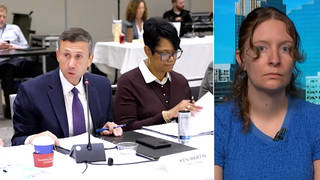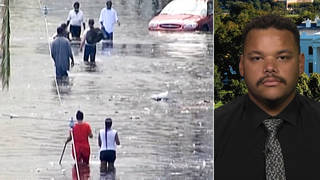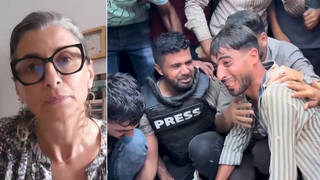The civil rights attorney Leonard Weinglass has died. In a career spanning over four decades, Weinglass’s cases included those of the Chicago Eight antiwar protesters at the 1968 Democratic Convention, the Pentagon Papers whistleblower Daniel Ellsberg, Philadelphia death row prisoner Mumia Abu Jamal, and the Cuban Five. Weinglass died Wednesday on his 78th birthday. Weinglass discussed the Cuban Five on Democracy Now! in 2007.
Leonard Weinglass: “This was a very unique case, Juan. This is the first time in our history that there’s been an espionage charge, conspiracy to commit espionage. The government admitted they could not prove espionage. But even conspiracy to commit espionage, there wasn’t a single page of classified document involved in this case. That never happened before. Furthermore, the defense was able to call General Atkinson, General Wilhelm, Admiral Carol, the adviser to the President of the United States on Cuba, all these witnesses for the defense. That never happened before in an espionage case.”
Amy Goodman: “Who are these men? And explain why they came here.”
Leonard Weinglass: “These are five Cuban men who were employees of the Cuban government. After a series of bombing attacks on Cuba in the early ’90s—a hotel was bombed, an Italian tourist was killed. The airport was bombed. Tourist buses were bombed. Cuba protested each and every act. The United States did nothing. Cuba then invited the FBI to come to Havana, and they did go, a delegation. They provided them with names and places and people who were engaged in this kind of violence. Again, the government did nothing. Then Cuba sent the five to infiltrate these groups, monitor their activities, and warn Cuba.”










